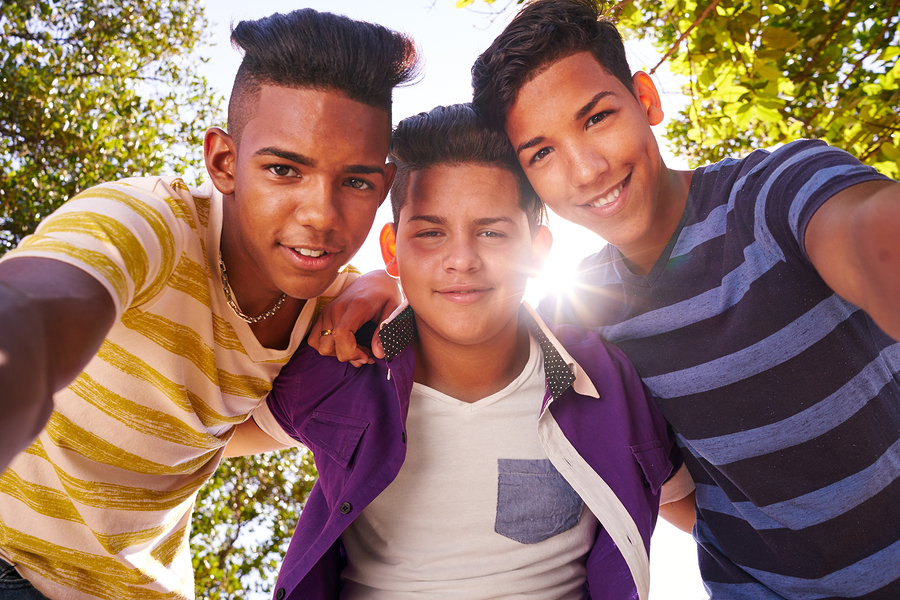Best friends can reduce social anxiety and point the way to healthy relationships in adulthood, a new study finds.
High school can be a time for making great memories, and also for facing tough challenges. Who can forget those epic pie-tossing competitions in the cafeteria? Or the football games when your team lost by a mile?Add to that ridiculously complicated fashion shows, being dumped by your boyfriend or girlfriend for the first time and surviving the best school musical ever to grace the surface of the Earth, and it can be a blast full of ups and downs.
Related: 50% of Teens Believe They’re Addicted to Smartphones
And it can also be stressful. Many teens may wish they were the most popular kid on the block, when trying to face it all. But experts are saying that simply having a couple of close friends on hand is really what’s best for your mental health.
Looking at a sample of 169 adolescents over 10 years, psychologists at the University of Virginia conducted a study comparing teens who had a few intimate friendships, with those who didn’t but were popular in a larger group.
Self Worth
It was found that the teens who had close friendships at age 15 fared better later on, compared with those who were well known and popular. This was discovered regardless of their racial or ethnic background, and socio economic status.
The teens with a few close friends experienced lower social anxiety and an increased sense of self-worth. They also had fewer symptoms of depression by the time they reached age 25, when compared with their peers.
“Our study affirms that forming strong close friendships is likely one of the most critical pieces of the teenage social experience,” explains Joseph Allen, Hugh P. Kelly Professor of Psychology at the University of Virginia, who coauthored the study.
Related: Late Bedtimes for Teens Leads to Weight Gain Over Time
“Being well-liked by a large group of people cannot take the place of forging deep, supportive friendships. And these experiences stay with us, over and above what happens later.”
In terms of the study, high-quality friendships were defined as “close friendships with a degree of attachment and support, and those that allow for intimate exchanges.”
Popularity, in contrast, was defined as “the number of peers in the teens’ grade who ranked them as someone they would like to spend time with.”
Positive Identity
So, why are intimate friendships so helpful? Researchers hypothesized that having a best friend in adolescence can help teens build positive feelings about themselves at a time when their identity is being developed.
This might set adolescents up to expect and encourage supportive experiences in the future. Teens who are well-balanced emotionally are less likely to seek out toxic friendships in adulthood. They may also be less likely to fall prey to the negative aspects of social media that can encourage people of all ages to build a superficial network of friends, while foregoing bonds in reality, face-to-face.
Quality over quantity. For more on helping teens build healthy relationships, click here.
Photo credits: monkeybusinessimages/Bigstock; diego cervo/Bigstock; pressmaster/Bigstock














